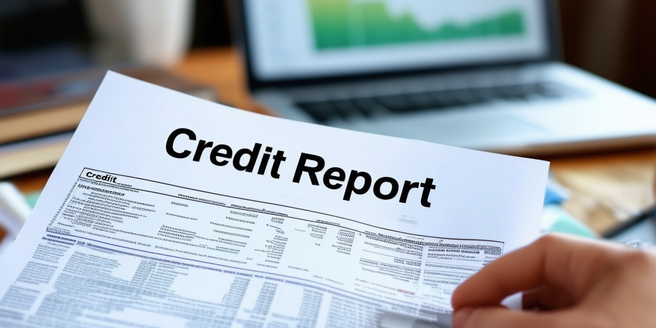Understanding The Basics of Credit Scores
Your credit score is a numerical summary of your creditworthiness, determined by financial factors that help lenders assess your reliability. The scoring system usually ranges from 300 to 850, with higher scores denoting better credit behavior implying that you handle your financial obligations effectively. This can lead to better loan terms, lower interest rates, and easier credit-line approvals. Key factors affecting your credit score include your payment history, credit utilization, and credit history length. Regular, timely payments, lower credit utilization signal responsible credit management and raise your score, while prolonged credit relationships indicate stability and reliability. Hence, your credit score represents your past payment behavior, how much of your available credit you utilize, and your credit usage duration.
Identifying The Causes of Bad Credit
Bad credit, a far too common and often misunderstood situation, can result from various factors such as irregular or defaulted payments, often resulting in a difficult-to-break cycle. Additionally, uncontrolled credit card balances can severely impact one’s credit score – while credit cards can build your credit history, misuse, like continuously exceeding credit limits or accruing excessive balances, can damage it significantly. More extreme factors like defaults, bankruptcy, and foreclosure can also drastically downgrade one’s credit score with their effects remaining on the credit report for many years, making repair challenging. Paradoxically, you can also land in a bad credit situation not from misuse but from never having used credit at all; no borrowing history makes lenders unable to assess your credit handling, thus making you a risky proposition for credit agencies.
Techniques to Mitigate Bad Credit
Mitigating bad credit involves responsible financial management strategies and regular monitoring of your credit report for potential errors. Timely bill payments such as for credit cards, utilities, or mortgages are essential as they demonstrate financial responsibility and bolster your credit score. A significant part of improving bad credit is the effort to reduce your debt load, which in turn reduces your credit utilization ratio evaluated by credit bureaus. Don’t close old accounts, especially negative ones; instead, improving their status proves consistent credit use history. A diverse credit mix like mortgages, auto loans, student loans, and credit cards can favorably impress credit bureaus. The path to better credit and a robust credit score entails regular credit report checks, punctual bill payments, gradual debt reduction, retaining old accounts, and maintaining a mixed credit portfolio.
Debt Management Strategies
Implementing efficient strategies to manage debt can make a huge difference financially, such as creating an accurate and practical budget to manage income and expenses effectively. Prioritizing high-interest debts and maintaining regular and consistent payments reduces total debt and boosts credit score. Furthermore, consulting debt management professionals can be beneficial for advice catered to specific circumstances. Additionally, consolidating debts into one or settling through negotiation with creditors can provide a structured approach to long-term financial stability and independence. Dedication, consistency, and careful financial decisions are pivotal in the journey towards freedom from debt.
Case Studies: Success Stories of Overcoming Bad Credit
Bad credit is a problem many face, often stemming from poor financial management. Numerous people have successfully improved their credit scores and financial stability, serving as inspiring success stories. Various strategies can be used to manage and overcome bad credit, such as debt consolidation, which simplifies repayments and may reduce interest rates, and credit counselling, which provides tailored guidance on effective money and debt management. In extreme cases, bankruptcy may be considered as a last resort to reset financial life. Regardless of strategy, personal discipline and fiscal responsibility are vital to successfully combat bad credit, combating the temptation to revert to old spending habits. Showcasing success stories of those who have faced dire credit situations yet have attained financial stability irrespective of their chosen path, underscores the importance of determination, discipline, and responsible financial habits.
Long-Term Habits for Maintaining a Good Credit Score
Maintaining a good credit score requires consistency in several key financial habits such as promptly paying off debts, maintaining low credit balances, not frequently applying for new credit cards, and managing various types of credit effectively. Making timely payments shows lenders you can meet financial obligations whereas keeping low credit balances reduces your credit utilization ratio – an important factor to lenders. While frequently applying for new credit cards may negatively impact your score due to too many hard inquiries, effectively managing different types of credit like mortgages, student loans, and auto loans portrays you as a good borrower. Practicing these habits will not only maintain a good credit score but also increases your chances of obtaining future credits on favorable terms.


